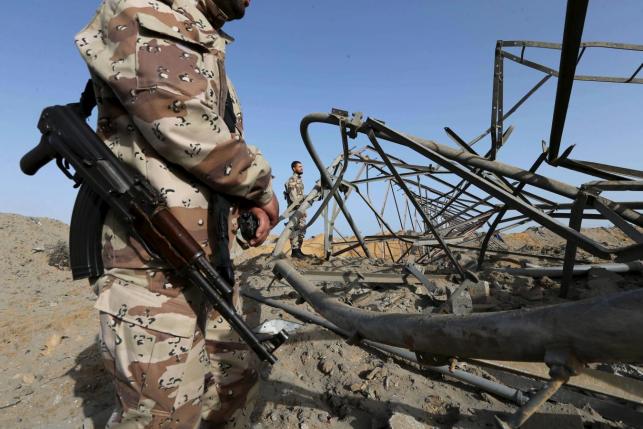
The spike in cross border violence has raised concerns for a ceasefire that has held since the last round of hostilities in Gaza ended in summer 2014.
Ageing Israel accords harm Palestinian economy: World Bank
"Overnight, in response to the ongoing attacks against Israeli forces, an IAF aircraft targeted four Hamas terrorist infrastructure sites in the northern Gaza Strip," the military said in a statement.
It did not mention if there were casualties.
The Israeli army hit five other Hamas operated sites earlier Wednesday in the south of Gaza, saying the raids were in response to mortar shells fired at its territory.
Those strikes hit around Gaza's derelict international airport near the southern city of Rafah and in nearby farming areas, according the territory's Hamas-run interior ministry.
Israeli tanks also shelled the Palestinian enclave at least twice on Wednesday, while the army established a closed military zone around the small border town of Nahal Oz.
There were no reported casualties from those raids either, and no claims of responsibility for the mortar fire that hit Israeli territory.
Hamas says Israel bus bombing proof of ‘resistance’
But both Hamas and Islamic Jihad, another militant Palestinian group, released statements warning Israel against any escalation along the border.
Hamas' armed wing, the Ezzedine al-Qassem Brigades, said it was ready to respond to Israel's strikes.
"We will not permit this aggression to continue and the enemy should not invoke any reason and leave the Strip immediately," the group said.
The border region has remained relatively quiet since the end of the 2014 hostilities, despite Israeli allegations that Hamas is building new tunnels from the enclave that could reach into Israel.
The tunnels were cited by Israel as a key cause of the 50-day 2014 war in Gaza, which killed 2,251 Palestinians, mostly civilians, and 73 Israelis, including 67 soldiers, according to the United Nations.
"Our efforts to locate and destroy the Hamas terror tunnel network are our main priority due to the serious threat to the lives and wellbeing of Israeli civilians," Israeli military spokesman Peter Lerner said in a statement following the overnight strikes.
Most of the sporadic rocket fire from Gaza has been attributed to fringe Islamist groups challenging Hamas's authority, although Israel holds Hamas responsible for all rocket fire from the territory and routinely responds with attacks on its positions.
The UN's special coordinator for the Middle East peace process, Nickolay Mladenov, said he was "concerned" at Wednesday's escalation.
"It is critical that peace be maintained to ensure the safety and security of Israelis and Palestinians, alike," he said in a statement.
During a visit to the Gaza border on Tuesday, Prime Minister Benjamin Netanyahu hailed its calmest period in years, according to comments reported by Israeli media.
Netanyahu vows Golan Heights will remain Israel’s ‘forever’
"We are nearing the end of close to two years since Operation Protective Edge," he said, referring to the 2014 conflict.
"These have been the quietest two years we can recall since Hamas came to power."
Daniel Nisman, founder of the Levantine analysis group, said the Netanyahu visit could have triggered a reaction.
"Maybe for Hamas that lit one fuse too many," he told AFP.


1719660634-1/BeFunky-collage-nicole-(1)1719660634-1-165x106.webp)

1732276540-0/kim-(10)1732276540-0-165x106.webp)


1732273396-0/Copy-of-Untitled-(72)1732273396-0-270x192.webp)
1732269802-0/Copy-of-Untitled-(71)1732269802-0-270x192.webp)
1732261957-1/Copy-of-Untitled-(66)1732261957-1-270x192.webp)







COMMENTS
Comments are moderated and generally will be posted if they are on-topic and not abusive.
For more information, please see our Comments FAQ